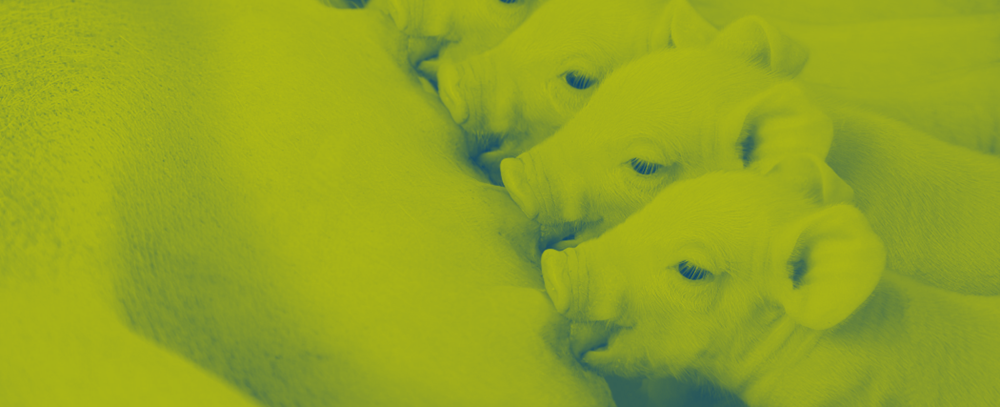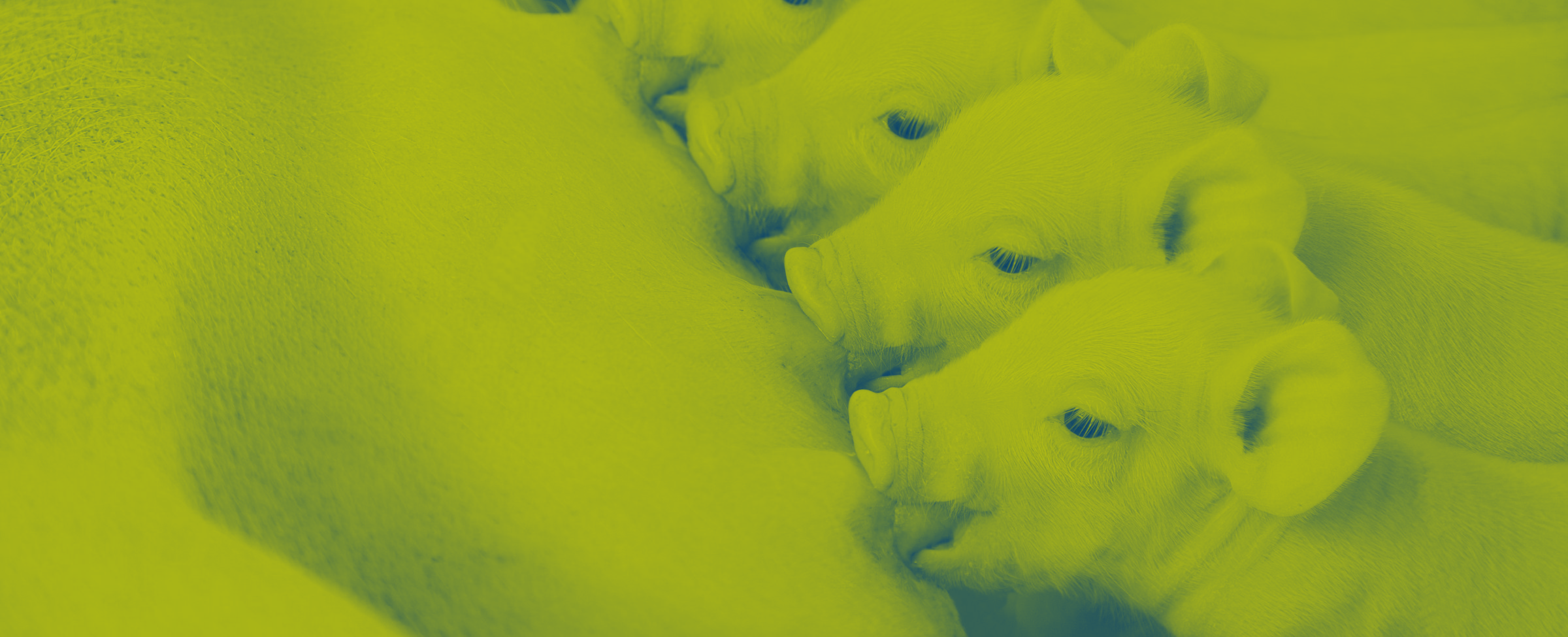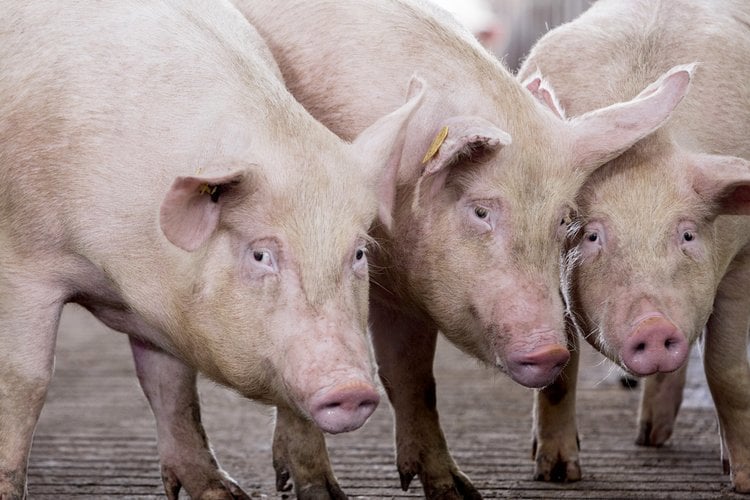
Reproductive performance and lactation
Sow performance is measured by the amount and quality of piglets produced. The efficient use of nutrients to support gestation and produce colostrum and milk is therefore crucial to achieving high performance. Factors such as feed intake capacity, digestive disorders, artificial insemination (AI) management and (heat) stress can all limit production efficiency.
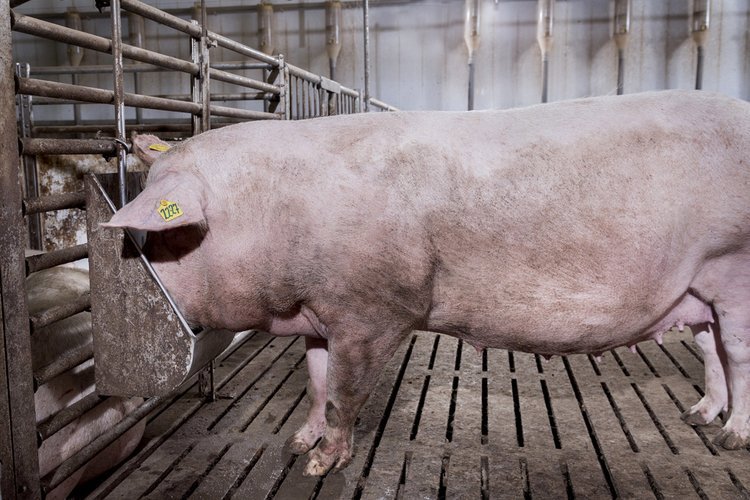
Quality of feed and water intake
As one of the most essential elements of livestock production, water should be carefully managed to increase productivity and improve financial results. Feed management also plays a crucial role in producing a healthy and strong-performing sow. Individual feeding based on parity, condition and stage of gestation/lactation ensures that sows receive the optimal nutrition based on their unique needs.
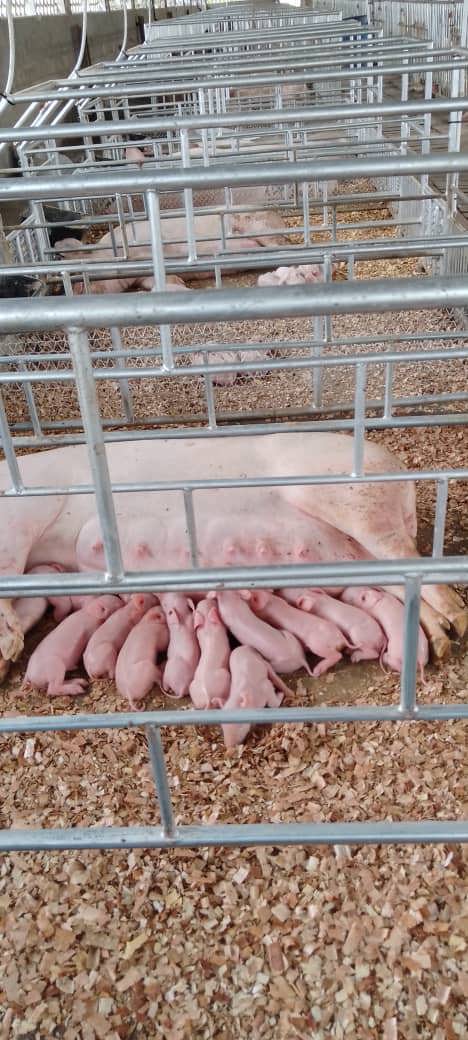
Reducing Antimicrobial Resistance
We all have a role to play in increasing human and animal safety by supporting the reduction of Antimicrobial Resistance (AMR). To support businesses in implementing strategies for reducing antimicrobials in swine production, Trouw Nutrition has developed a fully integrated Antiobitics Reduction programme for feed, farm and health management, including a step-by-step, uncompromising approach to achieving targets.
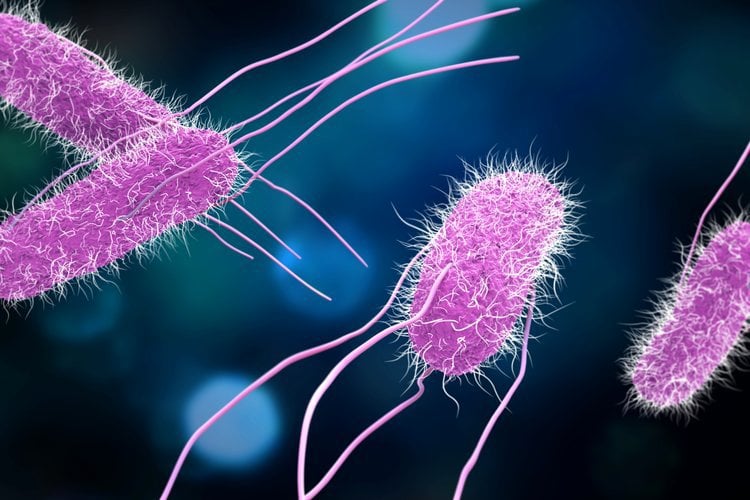
Controlling Salmonella
The presence of Salmonella infection affects animal performance and health as well as food safety. Although mostly asymptomatic, some serotypes cause disease, usually manifested as septicemia and/or enterocolitis. During their reproduction cycle, sows with Salmonella excrete and transmit it to their piglets, enabling the infection to remain in the drove. To comply with legal and commercial standards, Salmonella control measures should be implemented as early as possible in the production chain. A customised, integrated approach can protect and empower animals against Salmonella colonisation and invasion and help reduce its horizontal and vertical transmission.
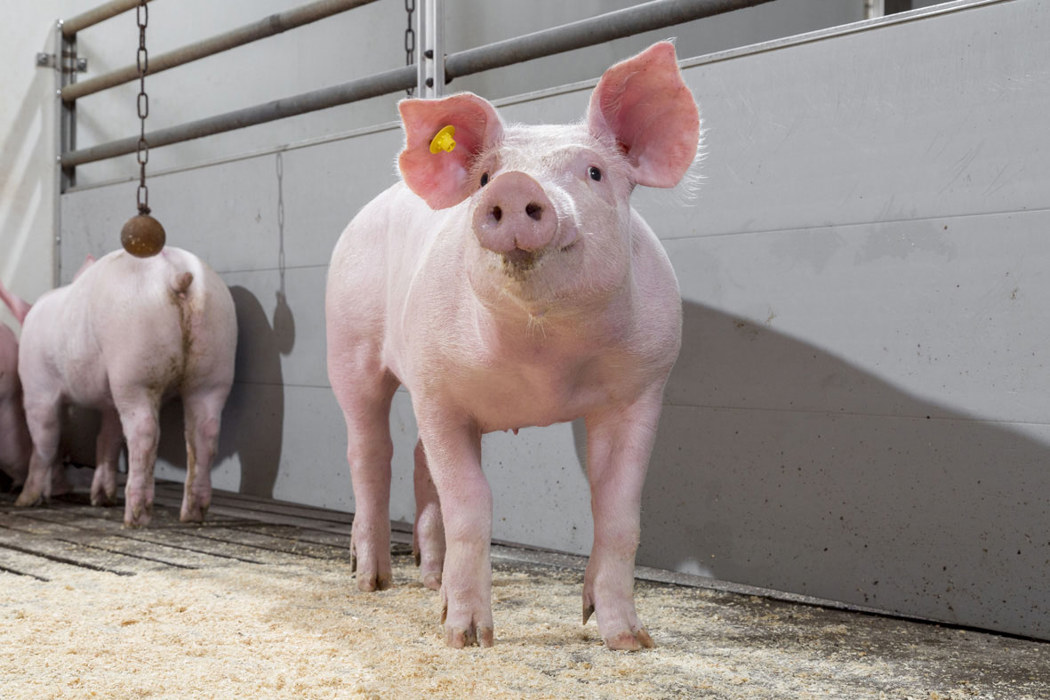
Mineral Optimisation
Trace minerals like zinc, copper and manganese play essential roles in all stages of a sow’s reproductive cycle. These minerals support multiple essential functions in sow physiology, including performance, immune response and health. Provided in wrong form and amount could lead to a reduced response to sow and litter health, smaller overall litter size, increased weaning weight for piglets, and potentially increased chance of premature culling. Therefor we encourage swine producers and nutritionists to work together to provide a cost-effective trace mineral source most capable of consistently meeting the needs of the animal.
Good sow management combines good health practices, different optimised diets and a sound breeding management.
